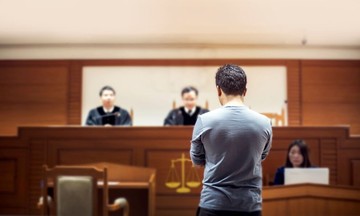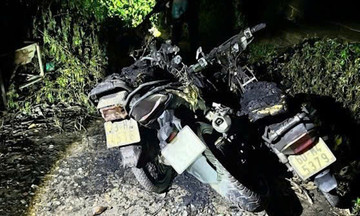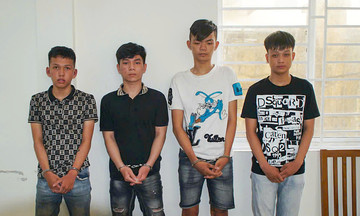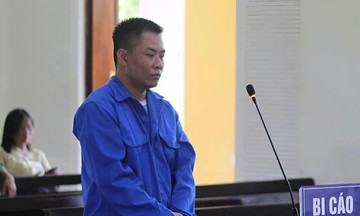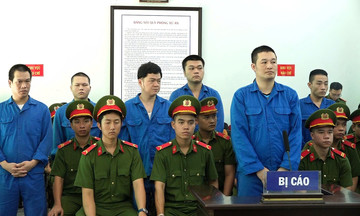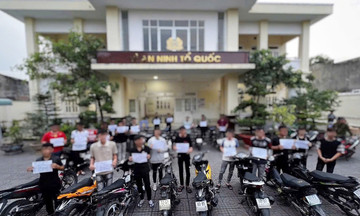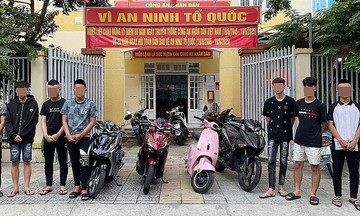On the evening of 11/8, a 20-second video circulated on social media depicting a young woman engaging in inappropriate behavior with the male driver of a red Mercedes on Le Duan Street in Phu Ly ward (Ninh Binh). The clip quickly gained thousands of views, shares, and comments.
Phu Ly ward police summoned three men (aged 24-33) for questioning. They admitted to staging and filming the video to gain online views. Police documented the incident, demanded the video's removal, and obtained pledges from the men not to repeat the offense. Further investigation is underway to determine appropriate legal action.
This incident highlights a growing trend of staged videos and AI-generated images used to create misleading and offensive content for online attention. Last month, a Hanoi Facebook user was fined for posting a fabricated image of traffic police handling a supercar violation. The AI-generated image showed a young man standing next to a supercar parked illegally, with traffic police issuing a ticket.
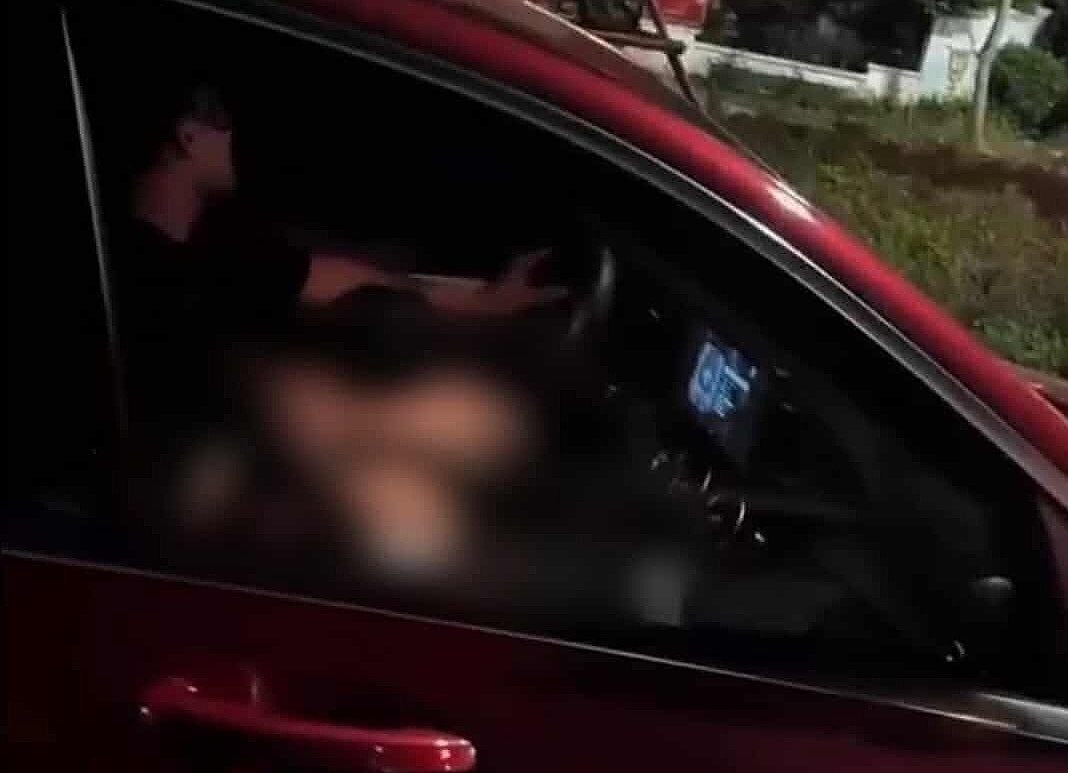 |
The clip staged by young men for views. Screenshot |
The clip staged by young men for views. Screenshot
Legal violations and distorted perceptions
Lawyer Tran Minh Hung, from the Ho Chi Minh City Bar Association, explained that using social media to share information contrary to Vietnam's cultural norms can result in fines of 10-20 million VND under Decree 15/2020/ND-CP (amended and supplemented by Decree 14/2022/ND-CP). Offenders may also be required to remove the false or misleading information.
Depending on the severity of the offense, stricter penalties may apply. Lawyer Hung suggests the prevalence of staged videos with misleading content stems from a lack of awareness of legal regulations and a focus on entertainment, advertising, or generating online revenue.
However, when content becomes offensive or fabricates events, it poses a significant societal risk. These staged videos often spread rapidly due to their sensational nature. Unverified information is readily shared, creating a "false truth" effect where viewers assume the content is genuine, making control difficult.
This severely impacts public perception. Viewers, especially vulnerable groups like children and the elderly, are susceptible to misinformation, potentially forming distorted views and behaviors," Hung stated, adding that false, offensive videos can lead children to develop inappropriate perceptions and imitate harmful actions.
Furthermore, the spread of false information online encourages the production of more harmful content. Seeing fabricated information, particularly on sensitive topics, attract views and generate income, incentivizes others to replicate such behavior for profit or fame, creating a cycle of misinformation.
"This is not just an ethical issue in content creation but a threat to a healthy information environment. If not addressed and dealt with seriously, it will have long-term negative consequences for the community," Hung said.
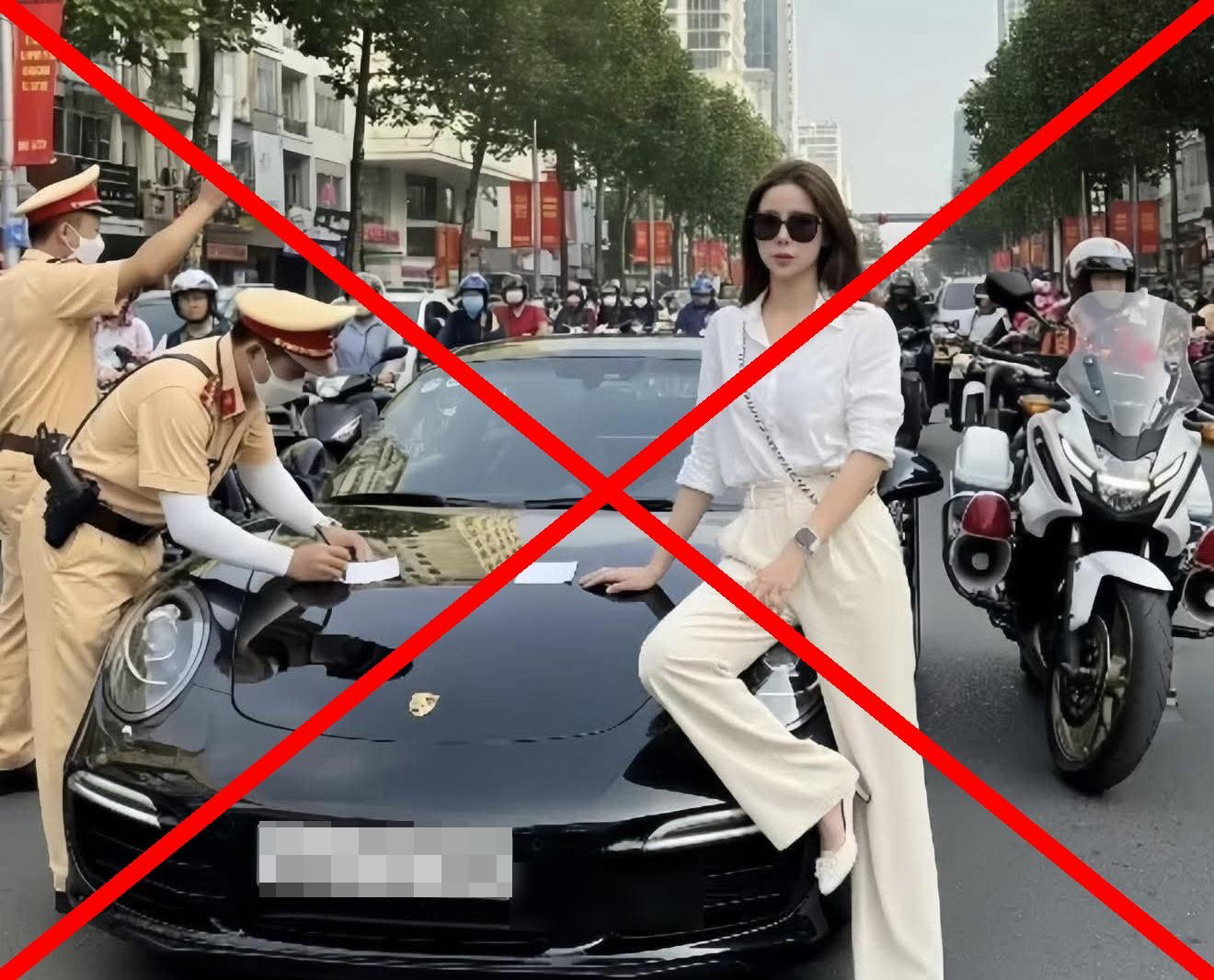 |
A recent AI-generated image depicting a false scenario. |
Facing potential criminal prosecution
Lawyer Hoang Anh Son, from the Ho Chi Minh City Bar Association, echoed these concerns. He noted that while many individuals have been penalized for posting and sharing false information online for views, the practice persists, causing public anxiety and impacting security and order.
Social media is widely used for entertainment and news, including by children and adolescents. Offensive staged videos posted online negatively impact these users, influencing their psychology and potentially leading to inappropriate behavior and legal violations.
Therefore, using cyberspace to spread misinformation, causing public confusion, or infringing upon the rights of others is strictly prohibited under the 2018 Cybersecurity Law (Article 8). This includes posting obscene and depraved content that undermines cultural norms.
Beyond administrative penalties, offenders may face criminal prosecution or be liable for damages (Cybersecurity Law, Article 9). According to Son, staging offensive videos that provoke outrage, especially if they cause serious consequences and social unrest, may lead to criminal charges for disturbing public order (Penal Code, Article 318).
As defined in the Cybersecurity Law (Article 2, Clause 3), cyberspace transcends spatial and temporal limitations. Committing an offense offline and then posting it online exacerbates the consequences.
Videos containing pornographic images or promoting depraved cultural products may lead to criminal prosecution for disseminating depraved cultural products (Penal Code, Article 326).
Lawyer Hung added that depending on the nature, consequences, and severity of the act, those posting false information online could face criminal charges for defamation, slander, or abusing democratic freedoms to infringe upon state and individual interests.
The Cybersecurity Law and related regulations contain specific provisions and strict penalties for posting and sharing false information online. "Social media users should carefully evaluate and select accurate, verified information from reliable, official sources to avoid unnecessary trouble or exploitation by those spreading misinformation," Hung advised.
Hai Duyen



